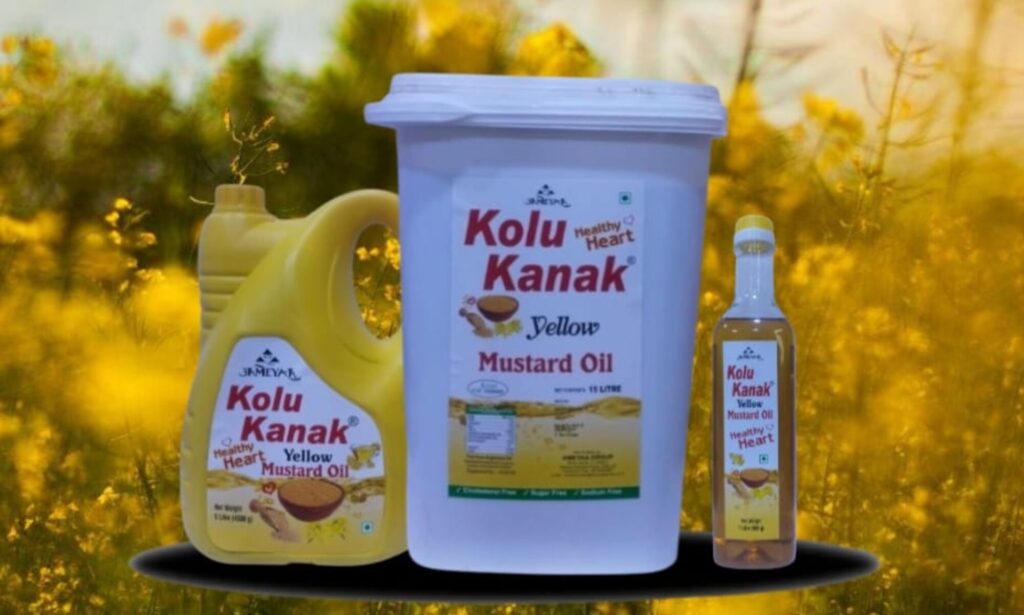
Mustard has many health benefits. It is packed with nutrients, reduces the risk of osteoporosis, helps to maintain gastric health, and is good for skin and hair health.
Mustards are a very good source of anti-oxidants that protect the body from free radical damage and oxidative stress. Mustards are a great source of glucosinolates that reduce inflammation and promote good health
12 Benefits That Prove Why Mustard Is Good For Health
by Meenakshi Nagdeve last updated – April 09, 2024 Medically reviewed by Vanessa Voltolina (MS, RD) ✓ Evidence Based
Different parts of the mustard plant may have been proven beneficial in a variety of health-related issues. This may include relief from muscular aches and pains to dermatitis among others. Mustard seeds and leaves might have also been shown to have anti-diabetic properties, apart from possibly improving heart health. In folk medicine, the seeds are considered to be beneficial for skin and hair when mixed with a cooling agent. Let us look at these benefits in detail.
6.8K
The Social Dilemma: Rewiring the Teenage Brain
NOW
PLAYING





What is Mustard?
Mustard is a versatile cruciferous vegetable that belongs to the Brassica family, similar to broccoli and cabbage. Native to the temperate areas of Europe, it was amongst the earliest grown crops in the region. For thousands of years, the mustard plant has been quite popularly cultivated in North Africa, Asia, and Europe more like an herb; it was even popular among the ancient Greeks and Romans. [1]
Presently, mustard is grown in over 21 countries with major production happening in Europe, Nepal, Canada, Ukraine, and India. Attributing to its flavor and therapeutic nature, the usage of mustard is quite popular all around the globe with approximately 700 pounds consumed annually.
Types of Mustard
Mustard is a multi-faceted botanical with several different varieties. Three variants out of these varieties – namely white mustard (Brassica alba,) black mustard (Brassica nigra), and brown mustard (Brassica juncea), have gained more popularity over others, and are commercially grown and used for their young flower stalks, leaves, and seeds. [2]
- White mustard (sometimes referred to as yellow mustard) has a milder taste and is normally used in the preparation of the famous American yellow mustard condiment.
- Black mustard is popular for its strong aroma and flavor.
- Brown mustard, also used to prepare Dijon mustard, offers a sharp pungent taste.
Mustard seeds can be a rich source of essential oils, minerals, and vitamins. Photo Credit: Shutterstock
| Serving Size : 100 g1 tsp (2 g)1 tbsp (6.3 g) | |
|---|---|
| Nutrient | Value |
| Water [g] | 5.27 |
| Energy | 508 |
| Energy [kJ] | 2126 |
| Protein [g] | 26.08 |
| Total lipid (fat) [g] | 36.24 |
| Ash [g] | 4.33 |
| Carbohydrate, by difference [g] | 28.09 |
| Fiber, total dietary [g] | 12.2 |
| Sugars, total including NLEA [g] | 6.79 |
| Sucrose [g] | 3.69 |
| Glucose (dextrose) [g] | 2.88 |
| Fructose [g] | 0.02 |
| Galactose [g] | 0.2 |
| Calcium, Ca [mg] | 266 |
| Iron, Fe [mg] | 9.21 |
| Magnesium, Mg [mg] | 370 |
| Phosphorus, P [mg] | 828 |
| Potassium, K [mg] | 738 |
| Sodium, Na [mg] | 13 |
| Zinc, Zn [mg] | 6.08 |
| Copper, Cu [mg] | 0.65 |
| Manganese, Mn [mg] | 2.45 |
| Selenium, Se [µg] | 208.1 |
| Vitamin C, total ascorbic acid [mg] | 7.1 |
| Thiamin [mg] | 0.81 |
| Riboflavin [mg] | 0.26 |
| Niacin [mg] | 4.73 |
| Pantothenic acid [mg] | 0.81 |
| Vitamin B-6 [mg] | 0.4 |
| Folate, total [µg] | 162 |
| Folate, food [µg] | 162 |
| Folate, DFE [µg] | 162 |
| Choline, total [mg] | 122.7 |
| Betaine [mg] | 1.9 |
| Vitamin A, RAE [µg] | 2 |
| Carotene, beta [µg] | 18 |
| Vitamin A, IU [IU] | 31 |
| Lutein + zeaxanthin [µg] | 568 |
| Vitamin E (alpha-tocopherol) [mg] | 5.07 |
| Tocopherol, gamma [mg] | 19.82 |
| Tocopherol, delta [mg] | 0.81 |
| Tocotrienol, gamma [mg] | 0.07 |
| Vitamin K (phylloquinone) [µg] | 5.4 |
| Fatty acids, total saturated [g] | 1.99 |
| 16:0 [g] | 0.98 |
| 18:0 [g] | 0.46 |
| 20:0 [g] | 0.28 |
| 22:0 [g] | 0.18 |
| 24:0 [g] | 0.11 |
| Fatty acids, total monounsaturated [g] | 22.52 |
| 16:1 [g] | 0.06 |
| 18:1 [g] | 8.46 |
| 20:1 [g] | 3.99 |
| 22:1 [g] | 9.36 |
| 24:1 c [g] | 0.64 |
| Fatty acids, total polyunsaturated [g] | 10.09 |
| 18:2 [g] | 5.92 |
| 18:3 [g] | 3.79 |
| 20:2 n-6 c,c [g] | 0.25 |
| Phytosterols [mg] | 118 |
| Tryptophan [g] | 0.26 |
| Threonine [g] | 0.84 |
| Isoleucine [g] | 1.18 |
| Leucine [g] | 2.08 |
| Lysine [g] | 1.84 |
| Methionine [g] | 0.48 |
| Cystine [g] | 0.68 |
| Phenylalanine [g] | 1.17 |
| Tyrosine [g] | 0.81 |
| Valine [g] | 1.51 |
| Arginine [g] | 1.93 |
| Histidine [g] | 0.88 |
| Alanine [g] | 1.17 |
| Aspartic acid [g] | 2.44 |
| Glutamic acid [g] | 5.27 |
| Glycine [g] | 1.59 |
| Proline [g] | 2.81 |
| Serine [g] | 0.76 |
| Sources include : USDA [3] | |
Mustard Nutrition Facts
The mustard plant brings an entire gamut of helpful constituents through its various edible parts. Mustard seeds can be a rich source of minerals such as calcium, magnesium, phosphorus, and potassium, according to the USDA. Along with this, it may be a good source of dietary folate and vitamin A as well. [4]
Mustard greens, or leaves of mustard plants, are possibly an excellent source of minerals including potassium, calcium, magnesium, and phosphorus. In addition to a healthy dose of dietary fiber, it might also contain vitamins A, K, and C, as well as folate (B9). [5]
Mustard oil is made from mustard seed. One tablespoon of mustard oil usually contains 124 calories, which though high in calories, is heart-healthy because of the presence of omega 3 fatty acids. [6]
Health Benefits of Mustard
Phenolic components and other valuable nutrients may be present in different parts of the mustard plant such as seeds, leaves, and oil collectively can offer a magnitude of health benefits with a unique flavor. The efficacy of the mustard plant for therapeutic usage is discussed below. Let us have a look at them in detail. [7]
May Relieve Symptoms of Psoriasis
The tiny mustard seeds might be effective against psoriasis, which is a chronic inflammatory autoimmune disorder. A study conducted by a team of Chinese researchers has shown the efficacy of mustard seed as a possible anti-inflammatory agent and as part of future psoriasis treatments. According to the study, the use of these seeds may also stimulate the activities of beneficial enzymes, which may encourage healing action against psoriasis-led legions. [8]

